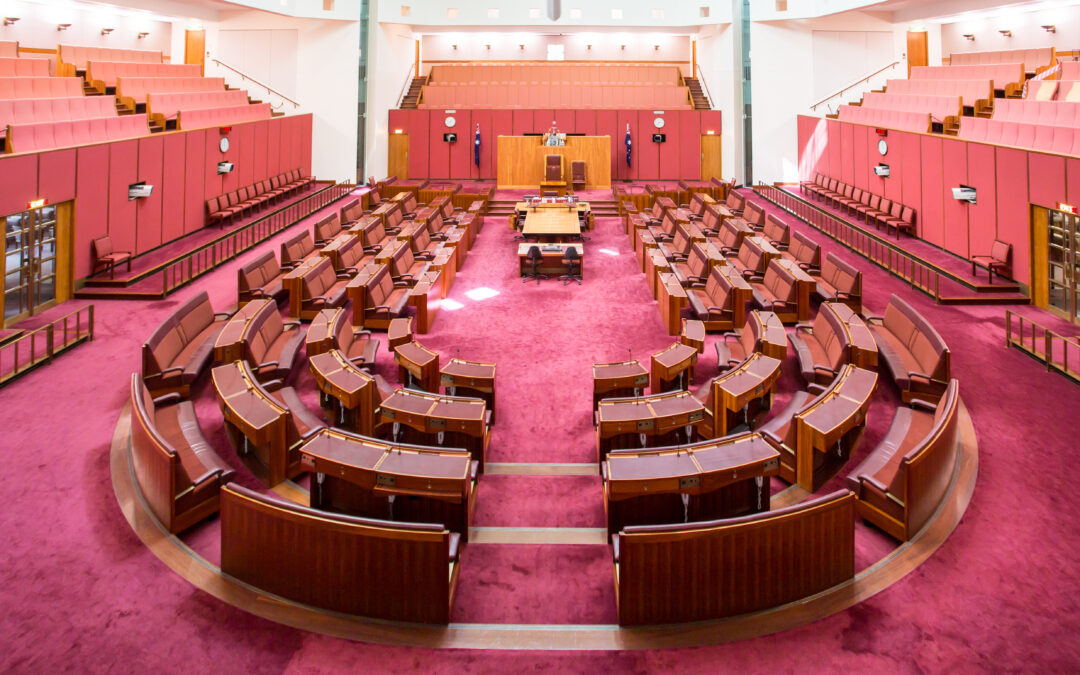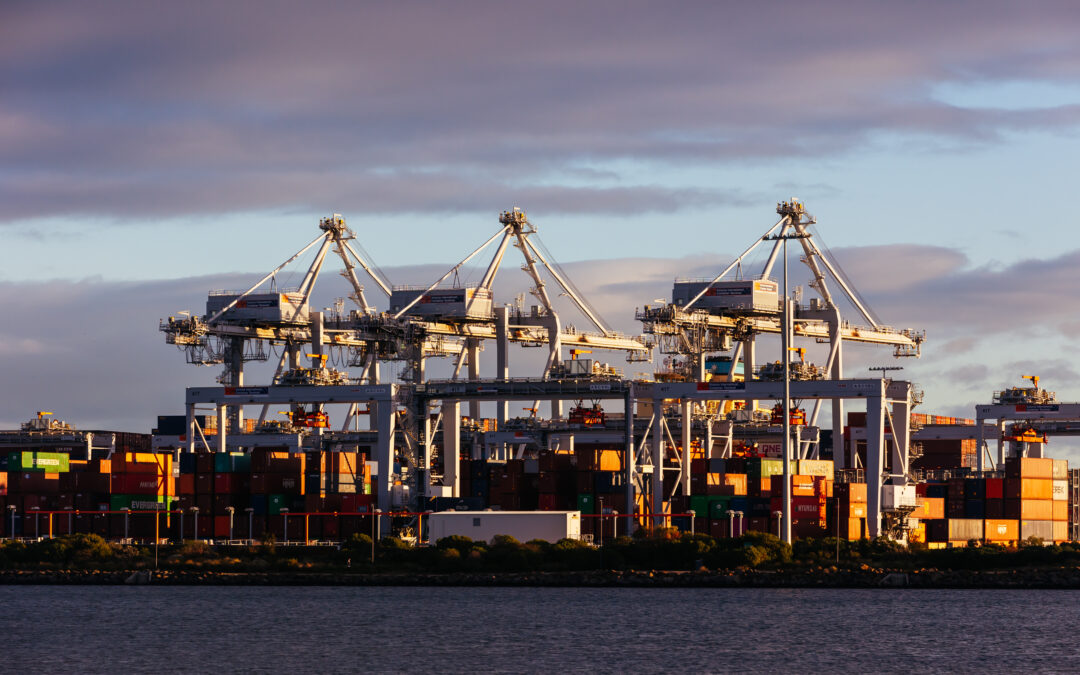
by Ashley Gardiner | Mar 18, 2024 | Media Release
The Australian Chamber of Commerce and Industry welcomes the passage of the extension of the Paid Parental Leave (PPL) scheme to support working parents across Australia but urges the government to reduce the administrative burden of the scheme on small businesses.
“In passing the legislation, we would like to recognise the advocacy of Senator David Pocock and Senator Jacqui Lambie in obtaining $10 million in funding from the government to support small businesses in navigating the red tape burden that comes with administering the scheme,” ACCI chief of policy and advocacy David Alexander said.
“A better outcome would have been the extension accompanied by changes which would have allowed small businesses to opt into administering the PPL.
“Services Australia should make the payments directly to recipients, as it already makes every payment beyond the first 40-day period of PPL to all recipients regardless of organisation size.
“Small businesses are unnecessarily caught up in the payments process, which creates a significant administrative burden and payroll processing time. When problems arise with payments that are not the fault of the employer, they can take a lengthy period of time to resolve, often causing distress to employees and employers.
“Working towards less red tape, not more, is especially important for small businesses.
“We look forward to continuing to engage with the crossbench senators. ACCI will also seek to work constructively with the Department of Social Services and Services Australia to design improvements that will assist small businesses in administering the scheme.”

by Ashley Gardiner | Mar 11, 2024 | Media Release
Australia’s largest and most representative business network applauds the government’s decision to eliminate around 500 ‘nuisance tariffs.’
“The elimination of these tariffs is a welcome decision towards reducing the cost of doing business within Australia, ultimately benefiting consumers,” ACCI chief executive officer Andrew McKellar said.
“ACCI previously advocated for the removal of nuisance tariffs, and we welcome the fact that the federal government has listened and acted.
“Removing these tariffs is an important step in simplifying the trade system and driving productivity.
“It will deliver broader economic benefits, especially welcome during the current cost of living crisis, with consumers benefiting from lower costs of imported goods.
“Ensuring our border systems are as efficient as possible is vital. It means Australian enterprises can spend more time on doing business rather than administering red tape.”
The red tape and distortions associated with the tariffs have been an unnecessary drag on the economy. The Productivity Commission has highlighted that tariffs contribute just 0.3 per cent of total government revenue but bear substantial compliance costs.
“The costs of tariffs have eclipsed any revenue benefit generated. Removing these nuisance tariffs is a prudent step, saving business $30 million on top of the government’s costs by avoiding this bureaucratic process,” Mr McKellar said.

by Ashley Gardiner | Mar 6, 2024 | Media Release
Australia’s lethargic economy is being weighed down by continuing poor productivity, with no plan on the horizon to reverse the trend.
National accounts data released today by the Australian Bureau of Statistics shows gross domestic product (GDP) growth almost crawling to a halt, at just 0.2 per cent in the December 2023 quarter, following growth of 0.3 per cent in the September quarter. Overall, the economy has grown 1.5 per cent for the year.
“Australia desperately needs to turn around this trend of productivity decline. In the short term, we must avoid a recession and the devastating impact that would have on businesses and households,” ACCI chief executive officer Andrew McKellar said.
Recent analysis by the Productivity Commission shows productivity contracted 3.7 per cent in 2022-23.
“As the government’s industrial relations legislation starts to roll out at ground level, the negative impacts will manifest themselves in slower growth and productivity,” Mr McKellar said.
The deteriorating economic situation continues to be masked by strong population growth. GDP per capita has declined for three consecutive quarters, a clear indication that conditions are moving in the wrong direction.
Cost of living pressures, from high inflation and declining real income, have weighed heavily on consumers over the past year, with household spending inching up 0.1 per cent for the quarter.
The rising cost of doing business is also overwhelming. Under the weight of sharply rising materials and labour costs, business margins are being squeezed, with the gross operating surplus of private corporations down 3.9 per cent during 2023.
Government measures not linked to productivity have contributed to compensation of employees rising by 8.4 per cent in the year to December, putting upward pressure on prices. Recent Treasury analysis shows that high wage growth made up almost two-thirds of headline inflation in 2022-23.
These pressures are also suppressing business investment, with investment in machinery and equipment down 1.3 per cent for the quarter. This has continued to deteriorate since the end of the temporary full expensing measure in June.
“Greater attention needs to be paid to driving business investment, essential to restoring productivity growth and reigniting the economy,” Mr McKellar said.

by Ashley Gardiner | Mar 4, 2024 | Media Release
A plan for a sharp and sudden cut to vehicle emissions will drive up prices and see households and businesses keeping older cars on the road for longer.
“This unrealistic target, supported by partial, simplistic analysis, will inevitably lead to the perverse outcome of making emissions targets even harder to achieve,” ACCI chief executive officer Andrew McKellar said.
The target to cut vehicle emissions by 60 per cent in five years is simply unachievable and will lock many potential new-car buyers out of the market due to higher costs.
“This means that households and businesses will keep their older, less fuel-efficient vehicles for longer,” Mr McKellar said.
ACCI, Australia’s largest and most representative business network, has outlined its concerns in a submission to the government’s consultation on a New Vehicle Efficiency Standard (NVES).
“ACCI is not opposed to introducing the NVES, but its design is crucial. The scheme as presented will have the opposite effect to what is intended,” Mr McKellar said.
The government’s favoured option is a heavy-handed regulatory approach that ignores the reality of rational consumer decision-making.
“The unachievable targets will likely result in severe penalties for car manufacturers. Consumers will end up paying more and face reduced choices in terms of model selection.
Regional Australians, tradespeople and emergency services will be unfairly impacted, as there are currently no low-emissions alternatives to 4-wheel drives, utes and other light commercial vehicles in the Australian market.
Recent warnings from car manufacturers and trading partners that a sharp increase in vehicle prices will be the result demonstrate that the scheme as proposed is unrealistic and too ambitious.
The submission can be downloaded here

by Ashley Gardiner | Mar 3, 2024 | Media Release
Ahead of the ASEAN-Australia Special Summit in Melbourne on 4-6 March, the Australian Chamber of Commerce and Industry welcomes the opportunity to explore the trade and investment opportunities presented by the Southeast Asian region.
“In September last year, the government launched its Southeast Asian Economic Strategy which pointed to opportunities across ten key industry sectors. With ASEAN delegations in Australia to mark 50 years of diplomatic relations, ACCI looks forward to participating in the ASEAN-Australia Special Summit,” ACCI chief executive officer Andrew McKellar said.
“Business has a key role to play in realising the Southeast Asia Economic Strategy’s goals to grow trade and investment to benefit both sides. The focus on business at the summit is proof positive that the government understands this.”
“There is no substitute for face-to-face connections. This week’s summit is a step in the right direction as we work to build these valuable business-to-business connections with Southeast Asian trade and investment partners.”
Mr McKellar will participate in the CEO Forum scheduled for Tuesday 5 March.
ACCI, Australia’s largest and most representative business network, will also partner with the Australian Made Campaign to host a promotional stall at a marketplace for SME Conference attendees, highlighting the role of the Australian Made Campaign and ACCI’s chamber network in every state and territory in supporting Australian exporters.
As a bloc, ASEAN is Australia’s second-largest two-way trading partner, encompassing five of Australia’s top 15 export markets. In 2022, Australia and ASEAN traded $177 billion in goods and services.




